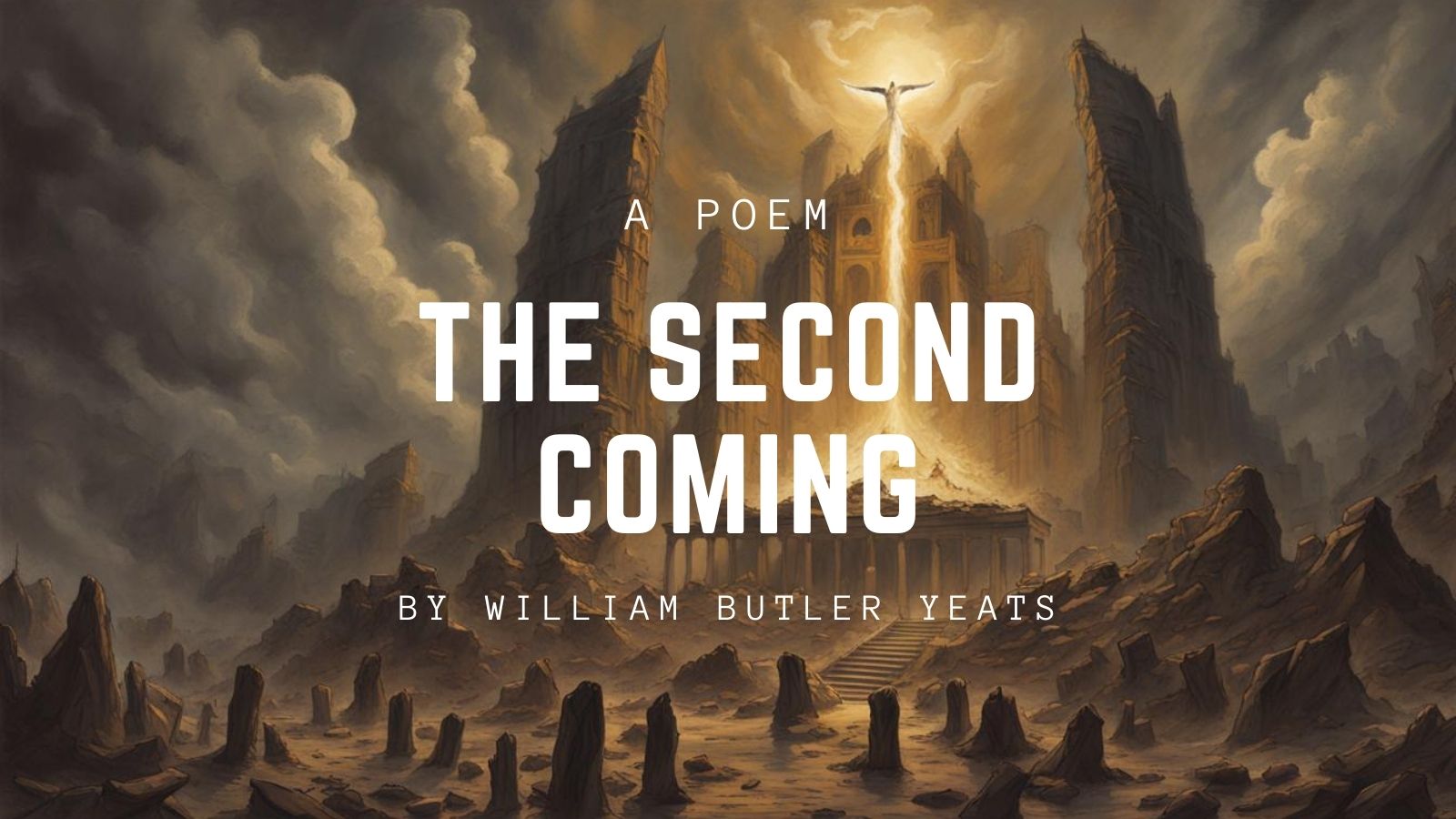The Second Coming by W. B. Yeats

The Second Coming
by W. B. Yeats
Turning and turning in the widening gyre
The falcon cannot hear the falconer;
Things fall apart; the centre cannot hold;
Mere anarchy is loosed upon the world,
The blood-dimmed tide is loosed, and everywhere
The ceremony of innocence is drowned;
The best lack all conviction, while the worst
Are full of passionate intensity.
Surely some revelation is at hand;
Surely the Second Coming is at hand.
The Second Coming! Hardly are those words out
When a vast image out of Spiritus Mundi
Troubles my sight; somewhere in sands of the desert
A shape with lion body and the head of a man,
A gaze blank and pitiless as the sun,
Is moving its slow thighs, while all about it
Reel shadows of indignant desert birds.
The darkness drops again; but now I know
That twenty centuries of stony sleep
Were vexed to nightmare by a rocking cradle,
And what rough beast, its hour come round at last,
Slouches towards Bethlehem to be born?
###
William Butler Yeats (1865-1939) was one of the foremost poets of 20th century literature. An Irish poet and playwright, Yeats helped drive the Irish Literary Revival and co-founded the Abbey Theatre. He was awarded the Nobel Prize in Literature in 1923 for what the Nobel Committee described as “inspired poetry, which in a highly artistic form gives expression to the spirit of a whole nation.”
Yeats was born in Dublin and spent his childhood between London and County Sligo in Ireland. The Irish landscape and folklore of his youth informed much of his poetic imagery and nationalistic sentiments later in life. Though he trained as a painter initially, Yeats turned fully towards poetry in his twenties while becoming involved in occult circles in London. He published several poetry collections in the 1890s as well as plays rooted in Irish mythology.
Alongside Lady Gregory, Yeats was a driving force behind the Irish Literary Revival aimed at reviving native Irish language and culture through art. As a playwright, he co-founded the Abbey Theatre with Gregory and others as a home for Irish drama. Over his long and prolific career, Yeats cemented his legacy as one of Ireland’s most revered writers, noted for his imaginative lyricism and powerful vision infused with Irish politics and mythology. His poems of unrequited love, Irish rebellion and the arcane remain widely influential in modern literature.